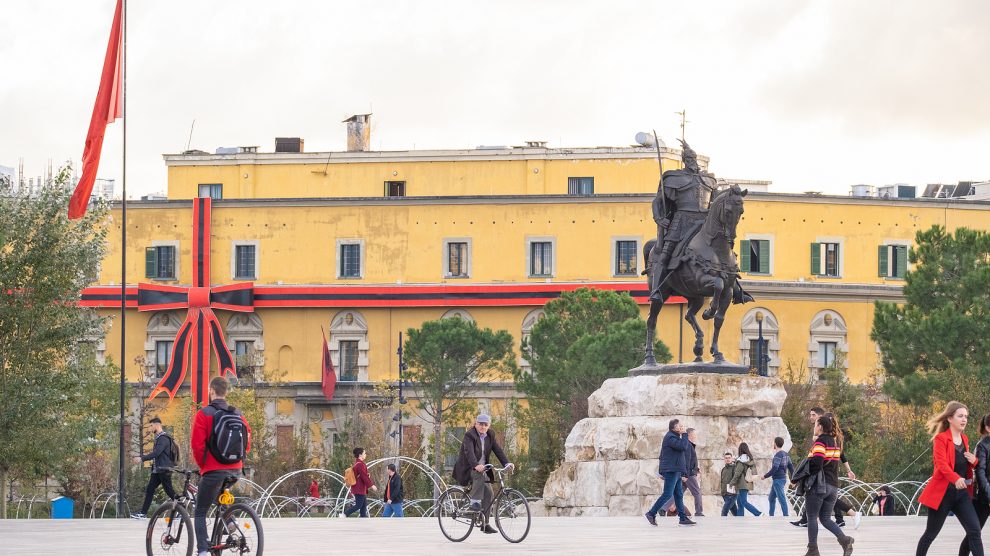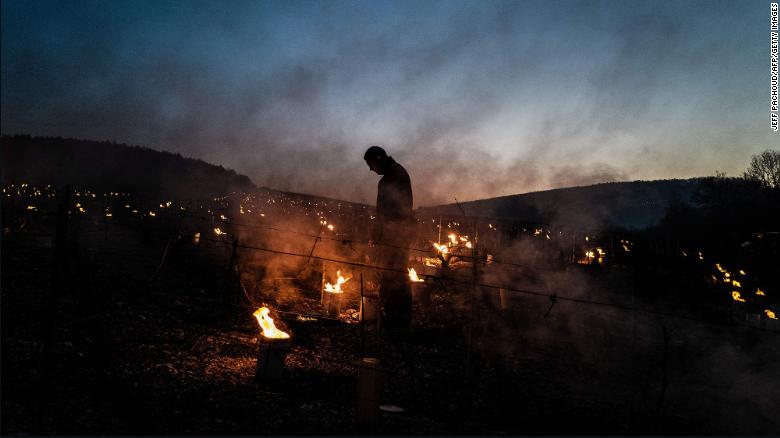

Hírek
Upskilling key to Albania’s continued growth
For Albania’s share of employment in high-skilled occupations to reach the Western Balkans average, more than 100,000 people (nine per cent of the workforce) need to transfer from low- and medium skilled jobs to high-skilled jobs.
Albania’s economic model requires greater investment in people’s skills, firm productivity, sustainability, and public finances, according to a new report from the World Bank.
The new World Bank Country Economic Memorandum (CEM) for Albania, published last week, says that the country has been severely impacted by the economic shocks which followed both an earthquake in 2019 and the Covid-19 pandemic.
It says that once the ongoing health crisis subsides, the country will need to refocus on its long-term economic objectives, which include building a strong and sustainable growth model to improve citizens’ living standards, thereby helping incentivise people with skills and talent to remain in Albania.
Albania’s working-age population continues to shrink as people emigrate in search of better job opportunities. The Albanian diaspora represents 57 per cent of the country’s current population, one of the highest in the world.
While Albania’s population of 2.8 million in 2020 has remained constant since the early 1980s, it has aged rapidly due to the continuous emigration of working-age Albanians and a decline in the fertility rate, from 3.4 in 1980 to an average of 1.62 in 2015–20.
“Through this report, we conduct a fresh analysis of Albania’s development challenges, summarise progress with reform implementation, and offer key recommendations that can help Albania achieve a sustainable, resilient and inclusive economic recovery,” says Emanuel Salinas, World Bank country manager for Albania. “In our recommendations we also focus on what needs to be done to enable the Albanian people to have healthy and productive lives and more and better jobs.”
Four key priorities
The report discusses four development priorities to strengthen the Albanian economy.
The first of these is investing in people and upskilling. The report says that to address the skills gap, Albania needs to shift its workforce from low- and medium-skilled jobs to high-skilled ones, but acknowledges that this a huge challenge.
For example, for Albania’s share of employment in high-skilled occupations to reach the average of the Western Balkans, 111,000 workers (nine per cent of the workforce) would need to transfer from low- and medium skilled jobs to high-skilled jobs.
This, the report suggests, requires improving the learning process, reforming the university system, and better matching skills development to labour market needs.
Second is increasing firm productivity and creating better job opportunities. GDP per person employed in Albania would increase by 40 per cent if Albanian businesses had the same level of productivity as the average Western Balkan firm. For Albanian firms to be more productive, the business environment must be improved, innovation must be strengthened, and integration of Albanians into the global economy must be deepened.
Thirdly, building a more sustainable growth model. More than 70 per cent of Albania’s waste is mismanaged, while earthquakes and floods cause damage costing 147 million US dollars each year, on average. The reports says that Albania needs to build an economic model that is environmentally conscious, and more resistant to natural disasters.
The fourth priority if strengthening public finances. Albania’s public debt is well above the average of the six Western Balkan countries. To ensure the sustainability of the country’s finances, personal income tax rates should be fairer, VAT revenues increased, and fiscal policy credibility reinforced, particularly through a sustained political commitment to fiscal rules.
https://emerging-europe.com/news/upskilling-key-to-albanias-continued-growth-new-report-suggests/
French winemakers face devastation after worst weather in 30 years
One of France's biggest export industries is facing a devastating blow after an unusually severe frost earlier this month damaged vineyards across the country, heaping pain on winemakers already reeling from the pandemic and US tariffs.
The frost has affected 80% of vineyards in France's primary wine growing areas, according to the European Committee of Wine Companies. "This is expected to cause a yield loss ranging from 25% to up to 50% in some regions," the trade body told CNN Business on Wednesday.
The destruction spread across the Rhone Valley, Bordeaux, Burgundy, Champagne, Provence and the Loire Valley, said Anne Colombo, president of the Cornas appellation, a wine-growing area in the Rhone region.
"In some regions there will be very, very few grapes [this year]," she said, adding that the frost in Cornas is the worst in more than half a century.
Winemakers tried to keep air temperatures up by lighting candles and braziers in their vineyards, but in many cases it was not enough to protect their budding vines.
"An important share of the harvest has been lost. It's too early to give a percentage estimate, but in any case it's a tragedy for the winegrowers who have been hit," said Christophe Chateau, director of communications at the Bordeaux Wine Council.
The frost also threatens other crops, including beets and rapeseed, according to the National Federation of Farmers' Unions. "The anguish is immense in vineyards, orchards and fields," the organization said in a statement last week.
Not since 1991 have farms faced such a devastating weather event, according to French Prime Minister Jean Castex. Government spokesperson Gabriel Attal told journalists on Wednesday that in some areas "almost the whole annual production" of certain crops could be lost.
The French Ministry of Agriculture and Food last week activated its "agricultural calamities" program, triggering tax relief and other financial support measures for farmers. Government officials held an emergency meeting with bankers, insurers and agricultural representatives on Monday to identify additional support mechanisms.
"To you, the farmers, who all over France have fought tirelessly, night after night, to protect the fruits of your labor, I want to say that we give you our full support in this fight. Stand firm! We are at your side and will remain so," French President Emmanuel Macron said on Twitter.
The crisis comes at a particularly difficult time for French winemakers, who are suffering weaker sales as a result of coronavirus lockdowns in key international markets, the collapse of tourism due to the pandemic and US tariffs related to a dispute with the European Union over subsidies to planemakers Airbus (EADSY) and Boeing (BA).
Exports of French wine and spirits fell nearly 14% to €12.1 billion ($14.5 billion) in 2020, with sales to the United States tumbling 18%, according to the Federation of Wine and Spirits Exporters of France.
https://edition.cnn.com/2021/04/14/business/france-wine-production-losses/index.html
Das Neueste zum San Pietro Resort in Gjiri i Lalzit
Das San Pietro Resort stand im letzten Jahr 2021 an der Spitze aller Diskussionen im Zusammenhang mit der Region Gjiri i Lalzit.
Dieses wunderschön gestaltete Resort ist in Bezug auf seinen Bau sehr weit fortgeschritten und bereits große Teile des Wohngebietes sind fast fertiggestellt. Während einige Eigentümer entscheiden, welche Art von Fliesen in den Apartments und Villen installiert werden sollen, ordern andere bereits ihre Traumöbel bei lokalen Möbelherstellern.
Das Entwicklungsteam beschleunigt gleichzeitig sein Tempo, um die letzten Arbeiten rund um das Resort abzuschließen, damit im späten Frühling und frühen Sommer alle Dienstleistungen für den bevorstehenden Urlaub bereitgestellt werden können.
Die Preise der Immobilien sind seit Juli 2021 bis Ende letzten Jahres stark gestiegen:
Die Wohnungspreise von 1350-1400 Euro pro m2 im Sommer erreichten im November 2021 bis zu 1500-1600 Euro pro m2.
Jetzt werden Preise von 1450-1500 Euro pro m2 für alle Wohneinheiten in der 2. und 3. Reihe festgesetzt, während die erste Reihe der Apartments bei 1600 Euro pro m2 notiert wird.
Tatsache ist, dass trotz des starken Anstiegs der Preise in San Pietro die Verkäufe ihr Tempo beibehalten haben und Anfang des Jahres 2022 nur noch sehr wenige Einheiten zum Verkauf stehen und noch weniger Einheiten in günstigen Lagen mit Freiflächen.










